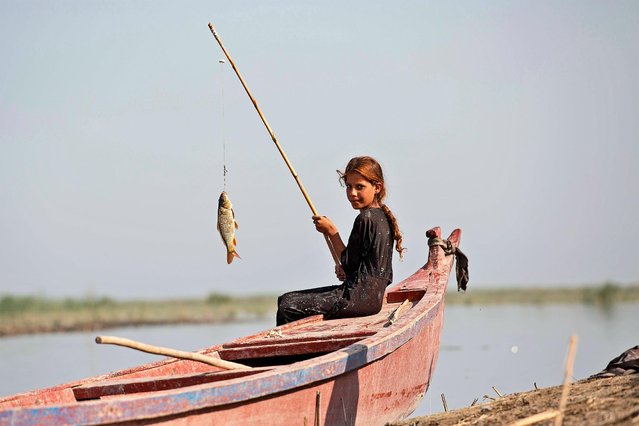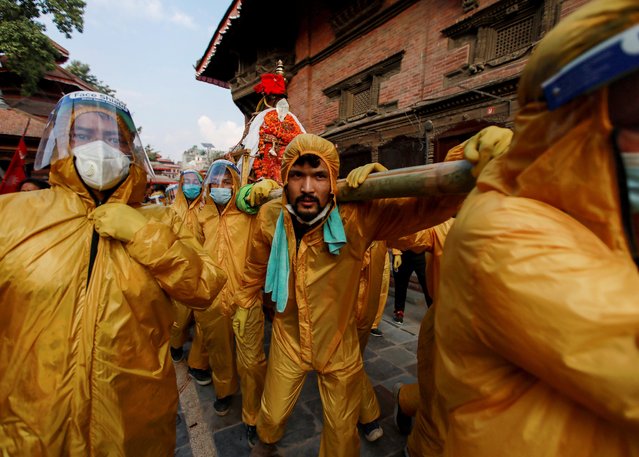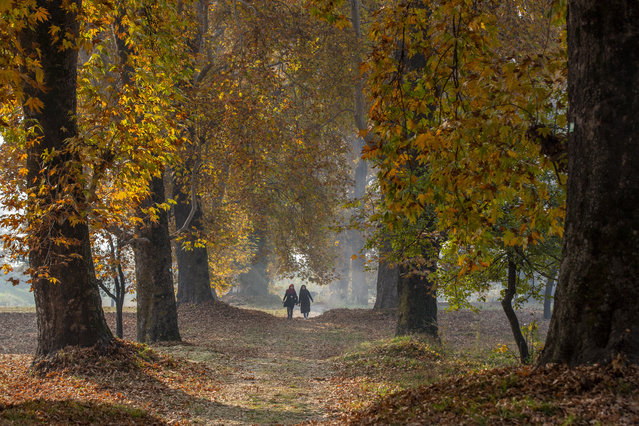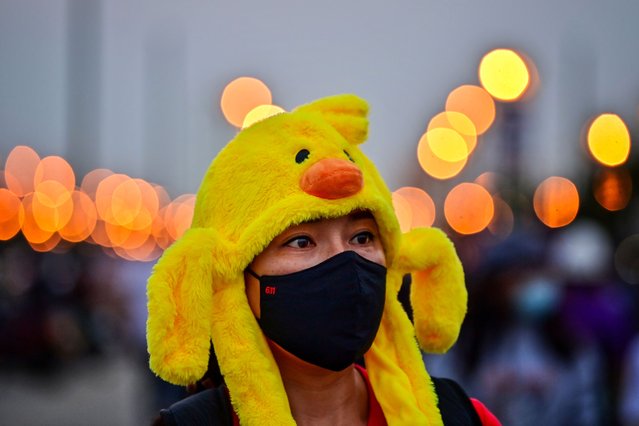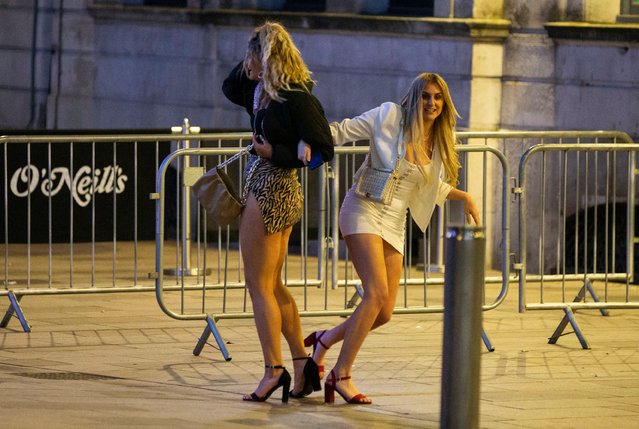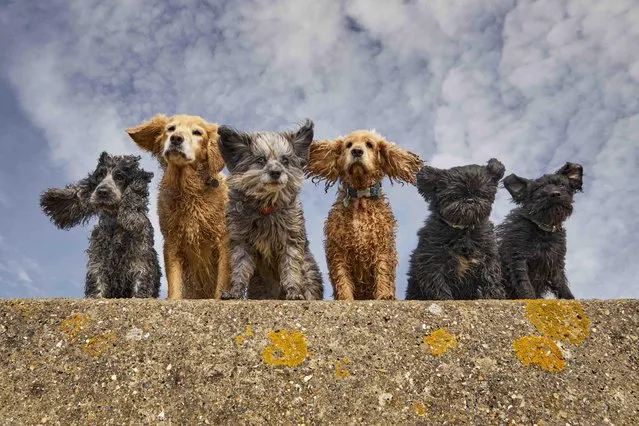
Two guests pose prior to the Dolce & Gabbana 2021 women's spring-summer ready-to-wear collection during the Milan's fashion week in Milan, Italy, Wednesday, September 23, 2020. (Photo by Luca Bruno/AP Photo)
25 Sep 2020 00:07:00,post received
0 comments

